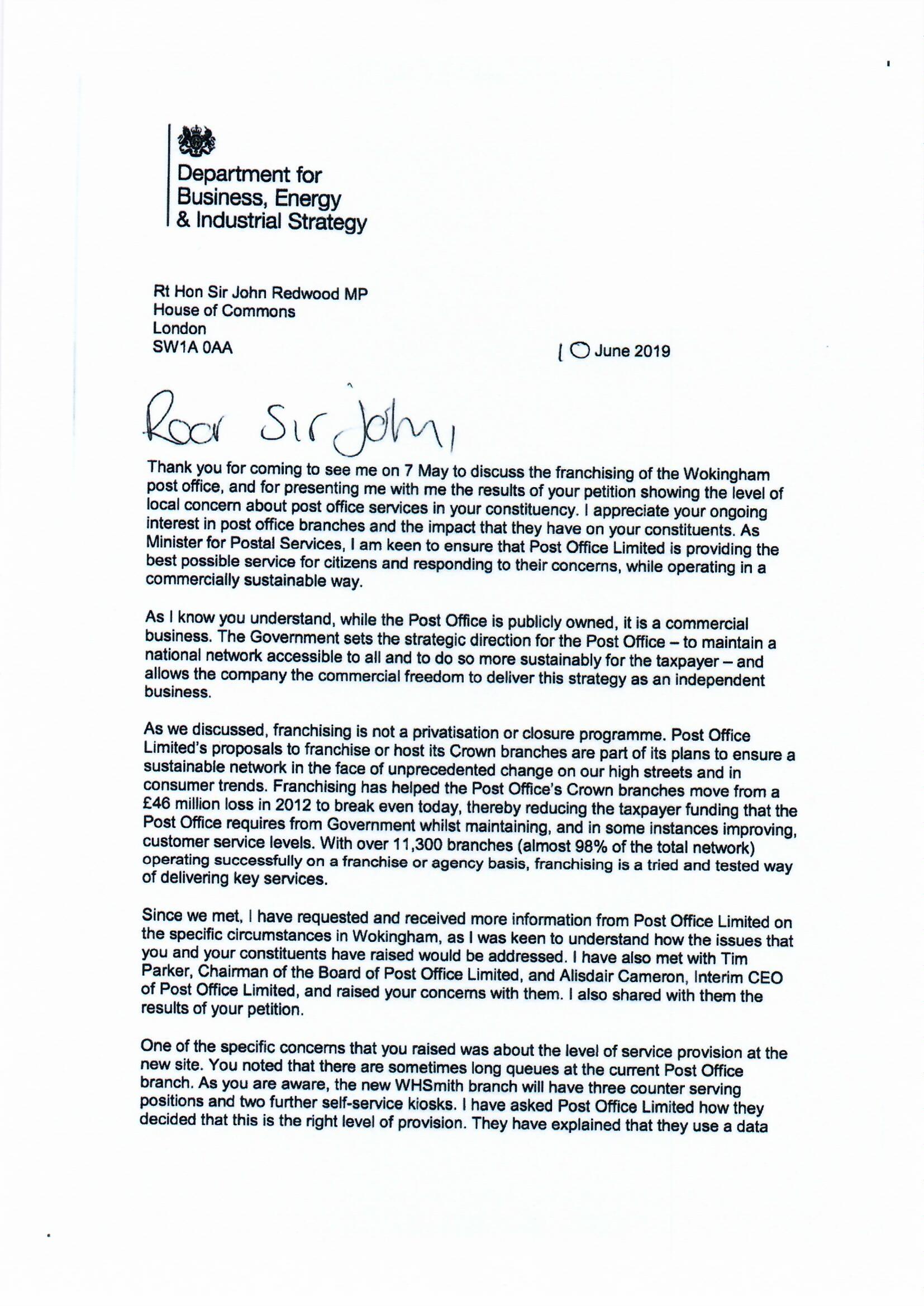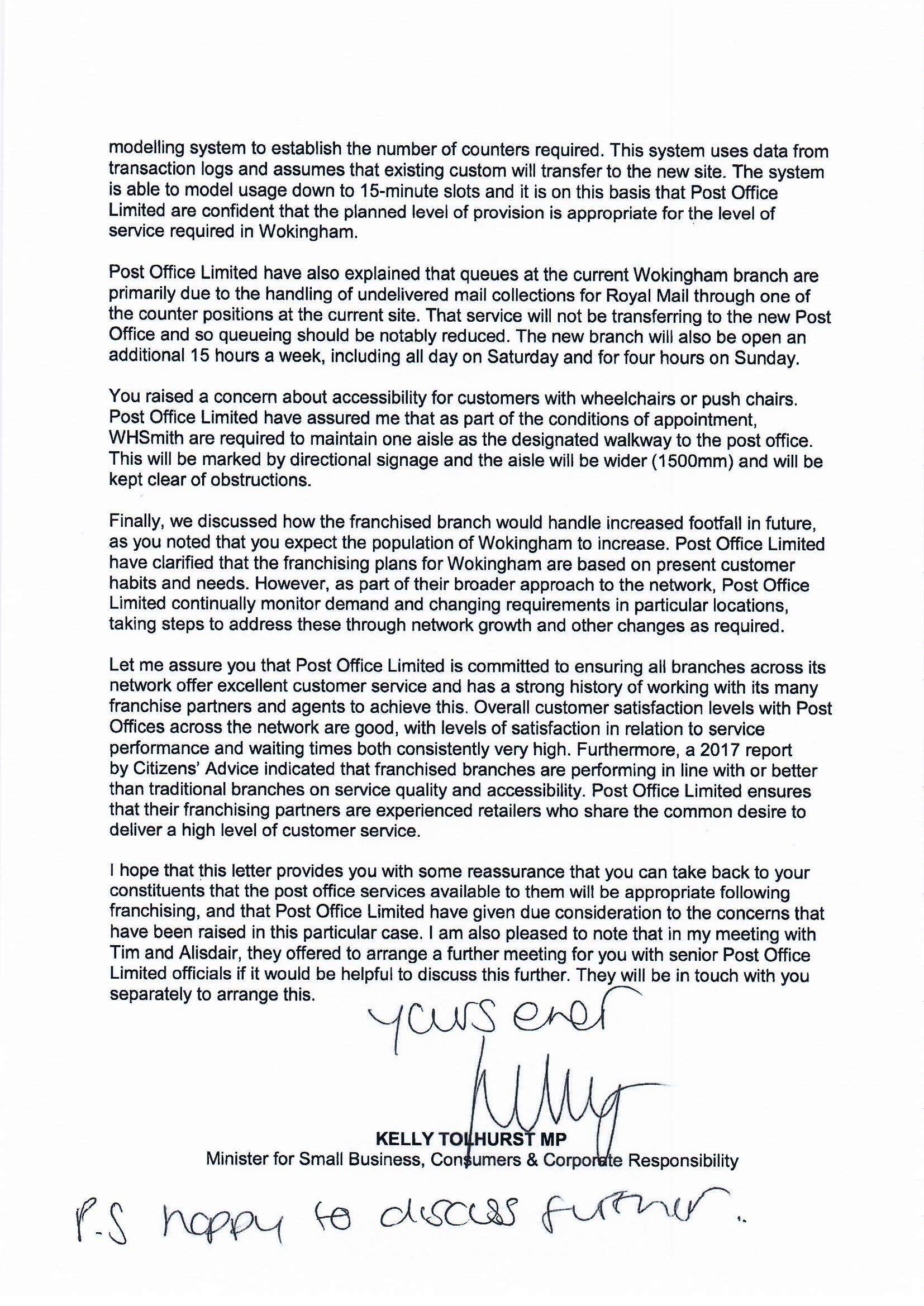Mrs May’s non EU policies

https://johnredwoodsdiary.com/
Mrs May set out a strong vision of a fairer and more prosperous UK in her initial statement of beliefs as she became Prime Minister. It hangs on the wall in 10 Downing Street as a reminder to visitors of what she intended. Unfortunately in office she was unable to make progress with it.
One of her mistakes was to appoint as Chancellor someone who did not buy into her vision, and who had no wish to use more public money to achieve some of the objectives she wished to set where state intervention was seen as part of the answer. The Chancellor did not conceal his wish to dilute and delay Brexit. He used Brexit as an excuse to withhold cash from public services or tax cuts on the grounds he wanted a “war chest” against a possible exit from the EU which he always wrongly thought of as damaging. The PM wanted more money for schools to help raise standards and give people a better start in life. She wanted more money for the NHS, which was eventually extracted after a long battle. She probably wanted or needed more money for social care, though that remains a series of problems in search of a policy.
She saw social care as a major issue. I remember being sounded out by the Downing Street Policy Unit on possible reform prior to the 2017 election. I advised a careful approach and suggested that first the government should issue a general document describing current policy and outlining the problems as they saw them, to invite responses and to trigger a national debate before trying to formulate answers. They said they were interested in how Margaret Thatcher had run things, and I reminded them I had helped Margaret approach welfare reform in this way with a big public conversation and enquiry before offering change. I was very aware from my work as a constituency MP that some people with no direct family experience of care homes did not know that the elderly person’s home had to be sold to pay the bills in many cases, and this needed to be more widely understood to have a conversation on care.
Unfortunately advisers decided they could invent and land a major reform of social care using a General election as a brief period to sell their ideas to the voters. Mrs May accepted a scheme for the 2017 election Manifesto that sounded like the old death tax that Conservatives had rejected under Labour. It turned out to be a predictable disaster which the PM had to reject during the election campaign itself, as criticism of the social care policy drowned out other matters and came from many potential Conservative voters.
She was keen to encourage more housebuilding and put in place various schemes and directions to do so. There was progress in increasing the build rate as she hoped. She saw the need for improved standards in schools, building on the reform work of the previous government. It was not a smooth path given the antipathy of teachers to the Gove reforms, and the shortage of cash for the lower funded schools around the country. She continued to develop and promote her agenda to curb modern slavery and to tackle discrimination.
The bold aim to narrow the north-south divide, one shared with many previous governments, made some progress with welcome acceleration of investment and modernisation in some of the great northern and Midlands cities.
The aim to develop a modern industrial strategy made little progress. The industrial strategy was damaged by the ever dearer energy which made it difficult to keep or expand energy using industries in the UK. The car industry strategy was damaged by the Chancellor’s higher taxes on cars and the general government assault on modern diesel vehicles. The Business Secetrary, like the Chancellor, was downbeat throughout about the opportunities and prospects after Brexit. The various car factory closures in the UK and rest of the EU and currant state of the uk steel industry shows the failure of their so called industrial strategy.
Nomination day

https://johnredwoodsdiary.com/
Today we will learn which of the many possible candidates have eight MP supporters and the will to contest the leadership. We have seen a long phoney war. There will be fewer candidates than the commonly touted 11.
Esther Mc Vey has come up with the clearest and strongest position on the EU. She has stated we must leave by October 31 with no further delays. She is a good presenter of Conservative views, using language that cuts through well and standing up to the abuse and attacks that come with the job. Like all the candidates so far she voted for the unacceptable Withdrawal Treaty on the third vote.
Several candidates have been diverted by stories of their past drug taking. As someone who did not take drugs because it was a criminal offence, I can say these revelations are not helpful to them, but have not proved to be a bar to high office. Mr Gove should not be supported for his long and futile support of the Withdrawal Treaty, his willingness to delay exit longer and his ill thought through views on VAT and sales taxes.
Boris has said the Withdrawal Treaty is dead and any negotiation with the EU would have to encompass both withdrawal and future relationship matters. This is reasserting the position in the Conservative Manifesto of 2017. Given the attitude of the EU it should mean we just leave with or without free trade talks and a mutual agreement to avoid tariffs and new barriers during the talks. He has rightly stressed we must leave the EU with no further delays by 31 October.
Mrs May as a political leader
Mrs May inherited a working majority from her predecessor. She chose to hold an early General election which lost her the majority. Her last series of local elections saw major Conservative losses with the Conservative vote down to just 28%. Her dreadful decision to delay Brexit and hold European elections saw the Conservative party slump to an all time low of 9.1% in a national election. This is a very poor record and explains in itself why the party wanted her to go.
There were few silver linings. It is true she managed to get the Conservative vote back up to 42% in the 2017 election, reuniting Eurosceptics from UKIP with Conservatives under a banner of delivering our exit from the EU in a timely and positive way. That was her high point. She asked the whips to consult the Parliamentary party over whether to hold the 2017 election or not. She had always ruled it out when asked. I was one of those who advised against, but I assume she must have got many saying they wanted to do it. I wanted us to c0mplete Brexit before going to the country, then setting out a post Brexit agenda.
She found it difficult understanding the cross currents of groups and voting blocs within the Parliamentary party. She always seem to exaggerate the numbers and strength of the Remain forces and in her last months in office seemed to delight in opposing the Leave majority on the backbenches, ignoring our advice and offers of support.
The most difficult thing to understand is why she ever thought the Withdrawal Treaty would pass, and why she persevered with the strategy of attrition trying to get more and more MPs to give in to vote for it. As I pointed out to her, even if in the very unlikely event that all Conservative MPs gave in the DUP were never going to accept the provisions on Northern Ireland so the legislation could not pass. Worse still insistence on the legislation threatened her whole government, which needed DUP votes to validate it and keep it in office.
The sorry procession of Ministers leaving office over the same issue would have alerted most politicians to the need to trim. The PM who was always willing to trim for the EU was never willing to trim for the Leave voting majority in the country or for the MPs who sought to represent them. It made her downfall inevitable. It means her successor has to rescue the country from Brexit delayed, and rescue the Conservative party from its historic 9.1% low in an election. Fortunately both tasks require the same positive action to get us out of the EU and to use the freedoms that brings for a better UK.
Dear energy fuels de industrialisation in the UK
Much of industry needs plentiful supplies of low cost energy. Industry is about transforming basic materials taken from the earth into materials, and then cutting, shaping and assembling these into manufactured goods. Transformation of silica into glass or iron ore into steel or oil into plastic requires very large amounts of heat energy. Creating components and final products from materials requires substantial energy to cut, shape, bend, bolt, glue and assemble.
The UK following EU rules and guidance has decided on a dear energy policy. Unsurprisingly this has triggered de industrialisation. The government says it has an industrial strategy, but its energy policy makes it more and more likely that industry will gravitate to cheap energy USA or lower cost China than stay at home. In the name of decarbonising our industry we will end up importing more industrial products from countries that burn as much or more carbon per unit of output but at cheaper prices. We have already lost most of our aluminium industry from this problem, and seen a big reduction in our steel industry and petrochemical capacity.
Let’s take the current case of the steel industry.
British Steel made a profit of £92m to March 2017, and a loss of £29m to March 2018. Losses have probably got worse since March 2018. Turnover rose in the year 2017-18. The main problems were
- The crippling costs of the EU carbon permits scheme. BSC had to find more than 10% of turnover for this item alone, leading to a UK government loan to cover the £120 m carbon tax.
- Dear energy costs, with UK electricity substantially dearer than US electricity thanks to the EU/UK energy policy
- Intense competition lowering steel prices in Europe, as countries like China diverted steel away from the US market following tariff impositions there. Prices fell around 15%.
- High cost of debt finance introduced by rescue company Greybull who took the company over for £1 in 2016
The business is being offered for sale in whole or parts by the Receiver with bids closing 12 June.
Possible solutions
The business needs cheaper energy one way or another. It needs assistance to counter the high costs of the carbon tax, if we are to use energy here to make steel instead of import it. There will be some kind of refinancing with a probable reduction in debt service costs as a result of the Administration. It can work at more sales of specialist steels with higher value added, as they seek to do, and can ask for more sensible help in gaining UK domestic orders for the their rail and construction steel products. Many of the solutions needed to help them require permissions within EU rules over contracts, competition, and subsidies, or are simply illegal.
The single biggest cause of the financial collapse of this business is the huge energy bill from dear energy combined with carbon permits. I have always urged the EU and UK government to understand dear energy means de industrialisation, but they refuse to listen.
The company owns some crucial plants – 4 blast furnaces, a Basic Oxygen facility, 4 casters and 3 mills.
I used to be responsible for Darlington Simpson rolling mills (not a BSC facility)) to make long and flat product so I have past working knowledge of part of the industry.

